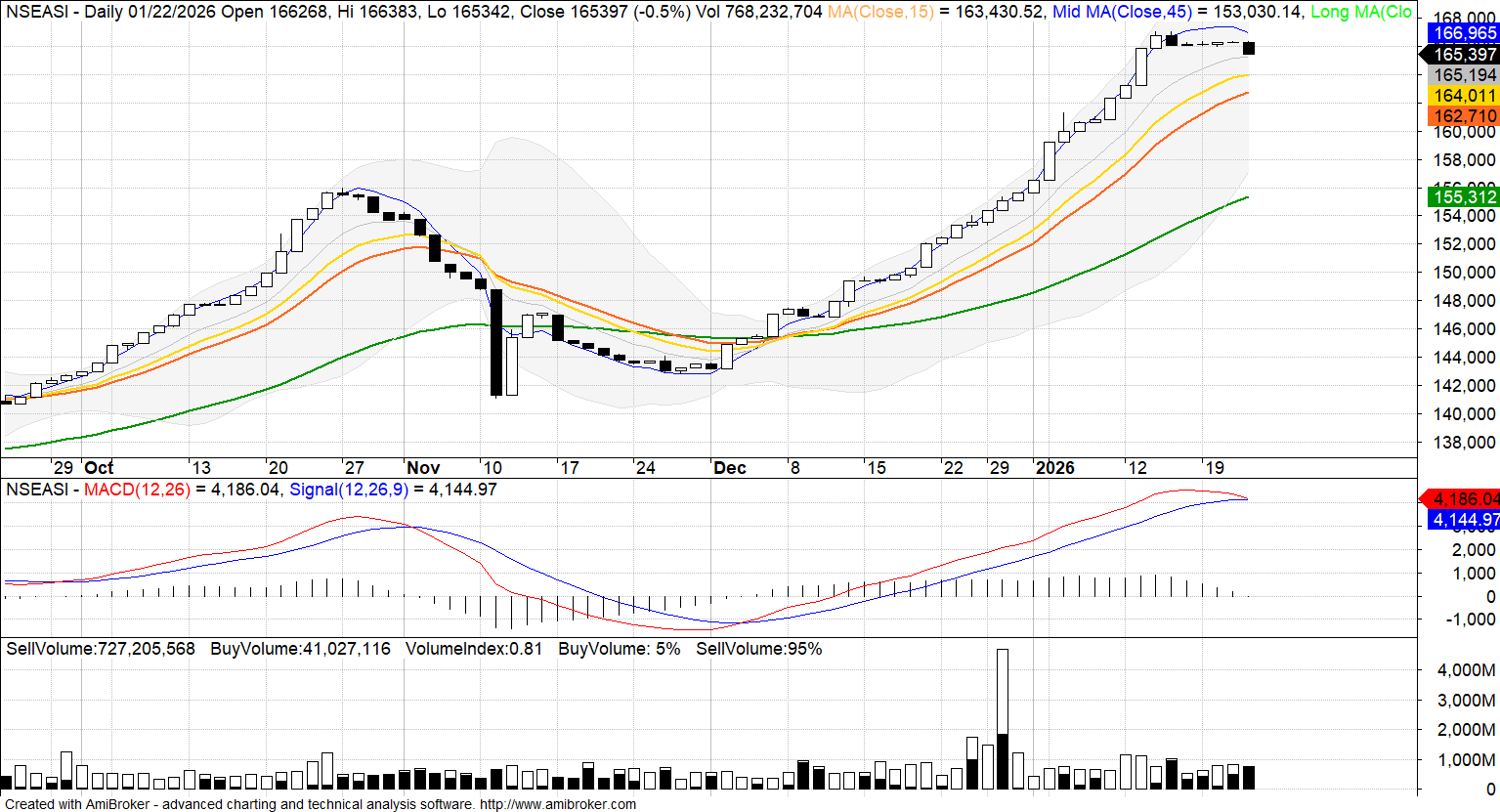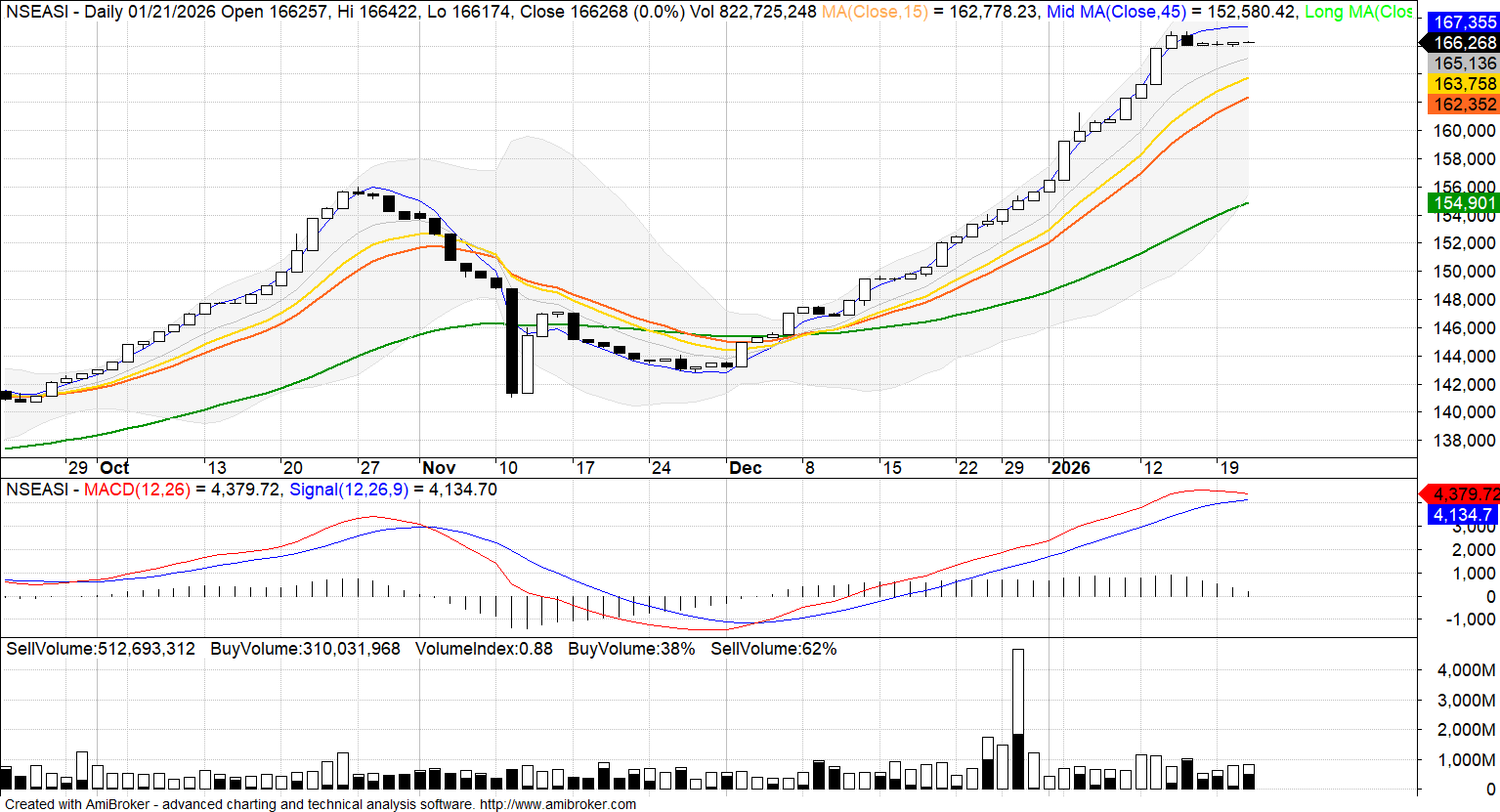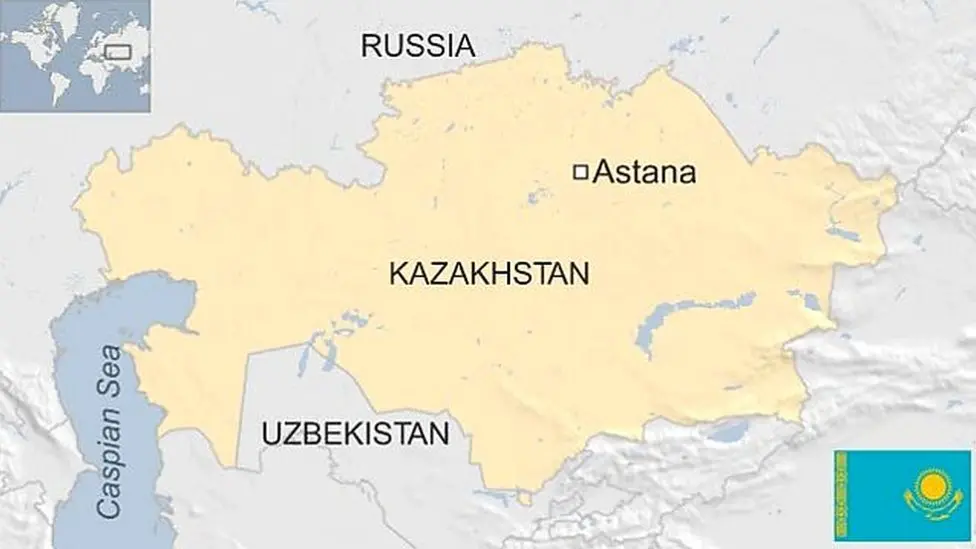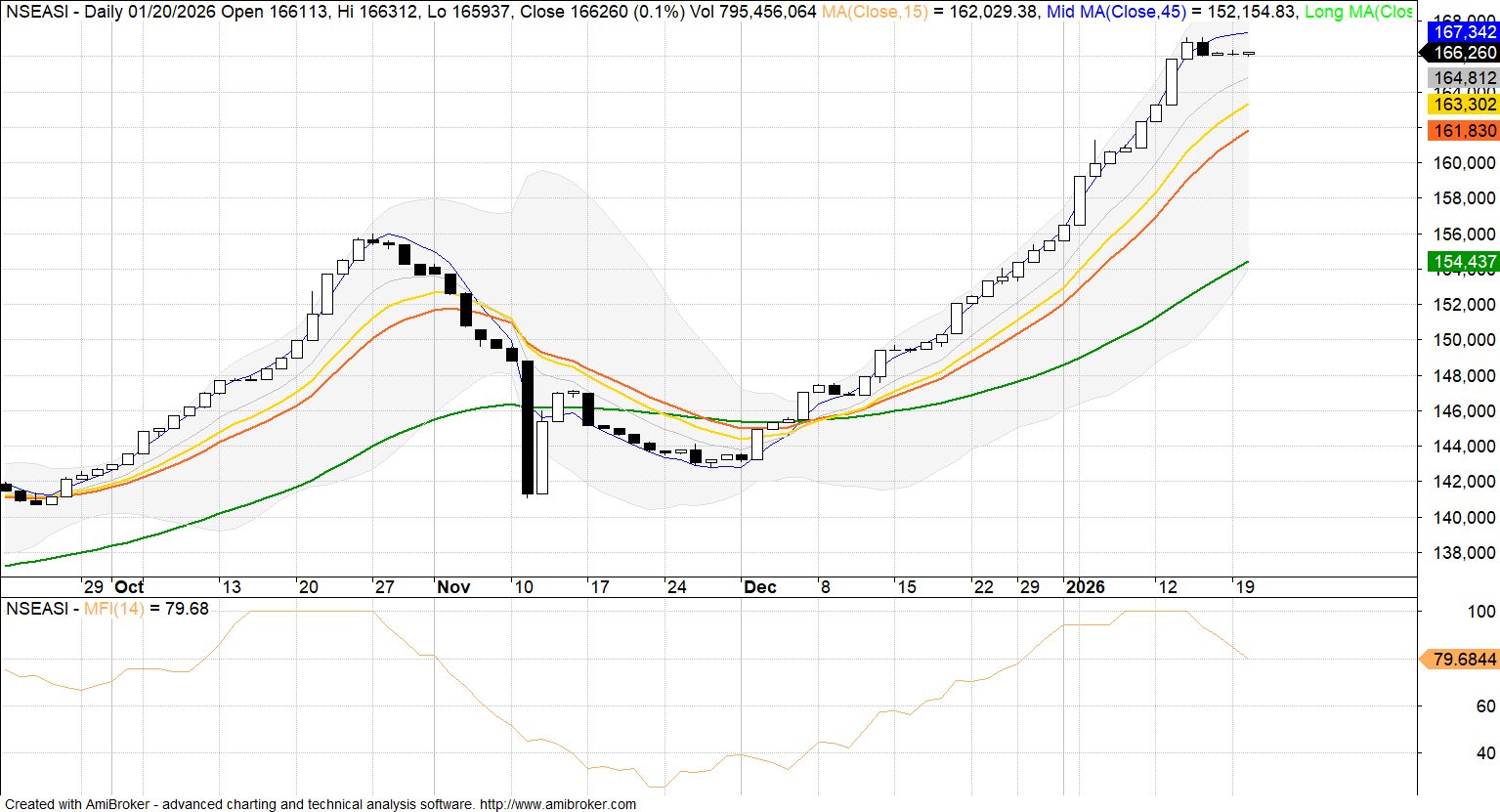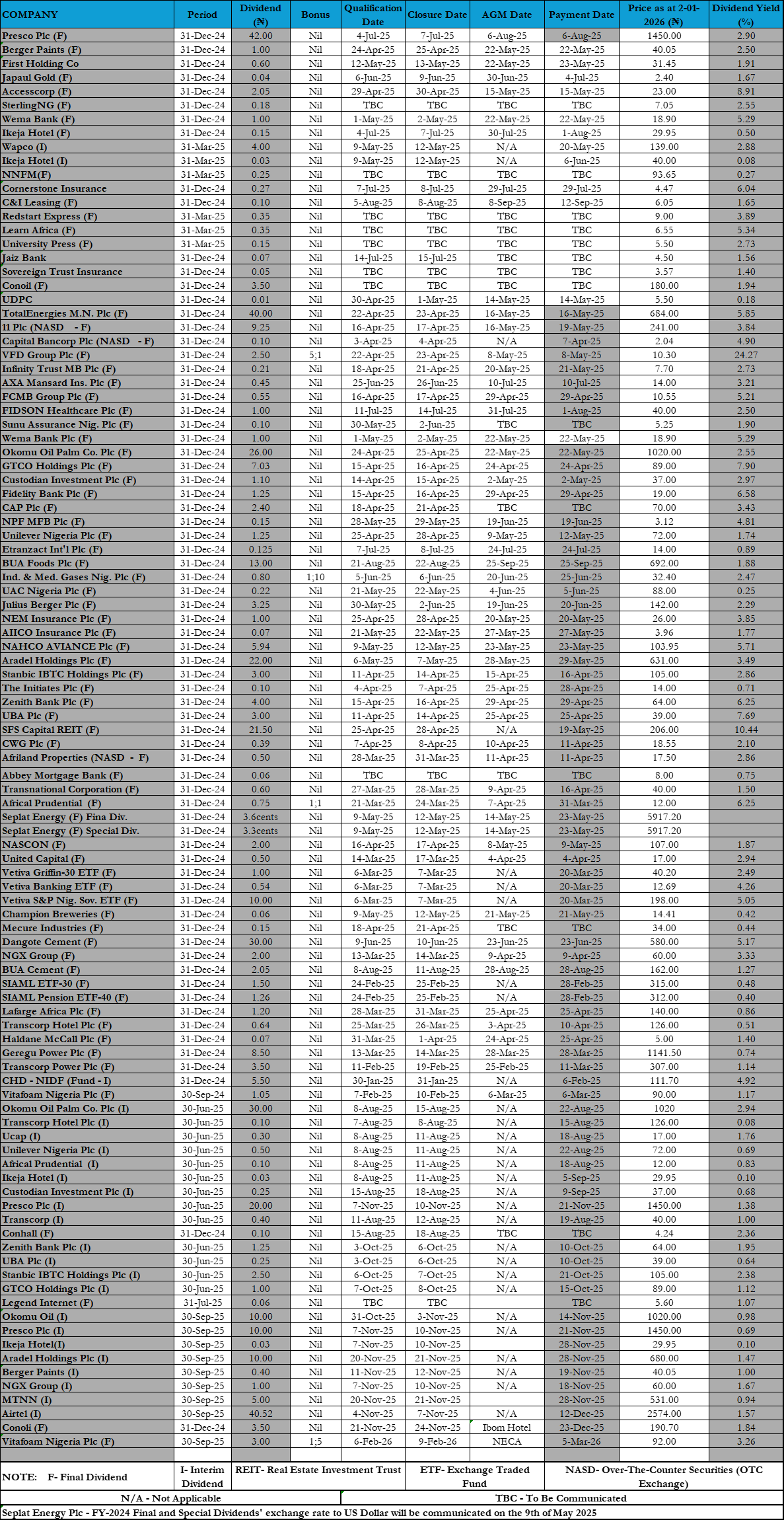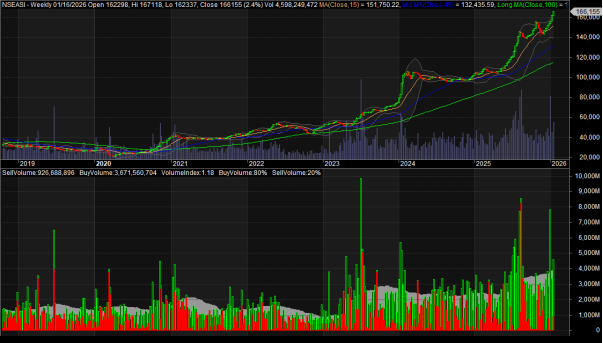
Market Update for the Week Ended January 17 and Outlook for Jan 20-24
The nation’s stock market, last week, had a mixed trend owing to profit-taking following two consecutive weeks of strong bull-run on early repositioning for the new year ahead of the peak period of the 2019 full-year earnings reporting season, given that most listed companies have December 31 as their financial year-end.
Also, being the period shareholders of many companies are rewarded with cash or bonus dividend that attract many players to the market at this time, especially now that the market’s average dividend yield is higher than all money market instruments rates due to the prevailing low-interest rate.
During the week under review, President Muhammadu Buhari signed the Finance Bill enacted to reform the economy and boost government revenue to support the implementation of the 2020 budget, into law. The delayed presidential ascent seems to have delayed the implementation of the 2020 budget.
That, notwithstanding, the February 1, 2020 implementation date will impact the economy and the capital market due to its multiplier effects on the entire system, just as incentives outlined in the Act, will enhance business and investment decisions, thereby shaping the economy (READ MORE).
The steady rise in inflation rate since the closure of the nation’s land border and prevailing low-interest rate regime has started to slow down, not minding the fact that the December consumer price index released at the weekend showed inflation hitting 11.98%, its highest level in 19 months. We should not also forget to consider it against the backdrop of the yuletide season, the rate of change from the previous month’s position of 11.85% (READ MORE). There is however the possibility of January inflation rate slowing down, the fiscal authority should invest more in infrastructural development especially power, road, and security. This will provide the enabling environment needed to naturally reduce the cost of doing business and the prices of goods and services.
The global economy and markets seem to have panned out with the first phase of the trade deal agreement between the U.S and China within the period under consideration, despite the geopolitical concerns between U.S and Iraq that continue to impact commodity prices in the international market. This deal had a positive impact on many markets of the world as they closed the week up and is also expected to boost the global manufacturing sector to drive economic growth.
Movement Of NSEASI
The NSE’s composite All-Share index had a mixed performance during the week under review, as trading for the period opened on a positive note gaining 0.74% on Monday, before being hit by profit-taking that halted 11 consecutive sessions of bull-run on Tuesday and Wednesday when the benchmark index lost 1.18% and 0.75% respectively. The market, however, rebounded on Thursday and Friday amidst the increased buying interest investors and positive sentiment for equity assets after N400bn matured from the OMO investment window. In addition, there was also the impact of the 364-Day Treasury Bills which hit a low of 5.1%, with the NSEASI gaining 1.00% and 0.91% respectively in the last two days to close the week positive.
The index opened the week at 29,415.39 points and touched an intra-week high of 29,909.06 basis points, on improved buying interest in banking and Oil/Gas stocks, to close at 29,618.52bps which represented 0.69% growth on high traded volume. Also, market capitalization climbed up to close the week at N15.26tr from its opening value of N15.18tr, representing 0.54% appreciation in value. This was despite the delisting of the 10.36bn ordinary shares of Continental Reinsurance, valued at N22.81bn from the official list of the Nigerian stock exchange.
At the end of the week, medium and high cap stocks dominated the advancers table as investors positioned ahead of corporate earnings which impacted the week’s positive reversal, despite the negative market breadth as decliners outnumbered advancers in the ratio of 42:21. The momentum behind the week’s performance was strong and up as revealed by the Money Flow Index reading 70.65bps, from 64.61bps in the previous week.
The high volume of trade and classes of stocks that appreciated in value shows that accumulation is ongoing in expectation of better 2019 full-year earnings reports. There is the hope of markup in dividend-paying stocks with high yields and strong earnings capacity, just as Investdata’s Sentiment Report for the week showed a positive sentiment of 72% ‘buy’ volume, and a ‘sell’ position of 28%, on a transaction volume index of 1.70.
NSEASI Weekly Time Frame
The positive sentiment behind the NSE Index price action and trading pattern for the week remained strong despite the mixed performance that supports sustainable market recovery. We note that with the index testing 29,909.06bps within the period is an indication of strong inflow into the market as institutional investors and fund managers position for the first quarter of 2020 being the peak earnings season of the market. The week’s candlestick formation indicates some level of profit-taking, which could continue depending on the outcome of the Monetary Policy Committee meeting slated to hold on Thursday and Friday.
The daily and weekly candlestick patterns revealed a mixed signal as it has formed double tops on a weekly chart which suggests a pullback in the short-term, while the daily chart indicates a likely break out of the recent resistance level. This will, however, depend on market forces to support uptrend.
MACD has remained bullish on both time frames, with the composite NSE index sustaining an upward movement that signals continuation of recovery as demand for stocks continues to look up in the midst of profit-taking.
The NSE benchmark index on a weekly time frame is trading above its 50-Day Moving Average, while on a daily basis, it is trading above the 100-DMA last week on a high traded volume. The Relative Strength Index read 65.15, indicating relative strength. However, Money Flow is reading 70.65 points and looking up on the weekly chart which is an indication that funds are entering the market and individual stocks.
Mixed Sectoral Indices
The sectorial performance indexes for the week were largely bearish, except for NSE Banking and Oil/Gas that closed higher by 2.302%, and 0.57% respectively, while NSE Industrial Goods Index led the decliners, after losing 6.27%, followed by the NSE Insurance and Consumer Goods indexes that were down by 2.62% and 2.15% respectively.
Transactions in terms of volume and value for the week were down by 21.94% and 18.21% respectively, as investors exchanged 2.09bn shares worth N26.47bn, as against the previous week’s 2.68bn units valued at N32.65bn. This volume was majorly driven by trades in financial services providers, especially in Access Bank, UBA, Zenith Bank and Union Diagnostic.
Forte Oil and Beta Glass were the best-performing stocks for the week, topping the advancers’ chart, after gaining 21.89.60% and 18.77% respectively, closing at N20.60and N63.90 per share on market forces and sentiment. On the flip side, NEM and BUA Cement lost 13.68% and 12.20% respectively, closing at N1.96 and N36 on profit-taking and market forces.
Market Outlook
We expect mixed performance to continue on profit-taking ahead of MPC Meeting outcome in the midst of continued repositioning by institutional investors as more of maturities of their earlier investments provide more funds to position going into the year. This is just as more liquidity finds its way to high dividend yield stocks with sound fundamentals, which will also be based on the seemingly positive outlook for the domestic economy, despite the mixed outlook for 2020 from different analysts.
Discerning investors, nonetheless, should take advantage of the current low stocks valuation to position for medium to long-term. It is noteworthy that the market is selling at a discount and therefore offers high upside potential.
We should, however, not overlook the possibility of a bargain-hunting motive supporting positive performance, especially with many fundamentally sound stocks remaining underpriced. With a dividend yield of major blue-chips continuing to look attractive in recent weeks, we expect speculative trading to shape the market’s direction, despite the seeming mixed outlook.
Again, the current undervalued state of the market offers investors opportunities to position for the short, medium and long-term, which is why investors should target fundamentally sound and dividend-paying stocks for possible capital appreciation in the New Year. This was noted in the 10 golden stocks and trading ideas for 2020, as discussed extensively during the Investdata 2020 Opportunities & Trade Ideas Summit.
Also, traders and investors need to change their strategies, because of the NSE’s pricing methodology, CBN directives and its impact on the economy in the nearest future.
Meanwhile, we thank all the participants of the Abuja Invest 2020 Summit over the weekend, as we also welcome you all to a bullish 2020. The home study packs of Invest 2020 Opportunities and Trade Ideas Summit containing the 10 Golden Stocks for 2020 are available with an average return of 13.37% in less than 30 days. To obtain your pack send ‘Yes’ or ‘Stock’ to 08028164085, 08032055467, 08111811223 now.
Ambrose Omordion
CRO|Investdata Consulting Ltd
info@investdataonline.com
info@investdata.com.ng
ambrose.o@investdataonline.com
ambroseconsultants@yahoo.com
Tel: 08028164085, 08032055467


